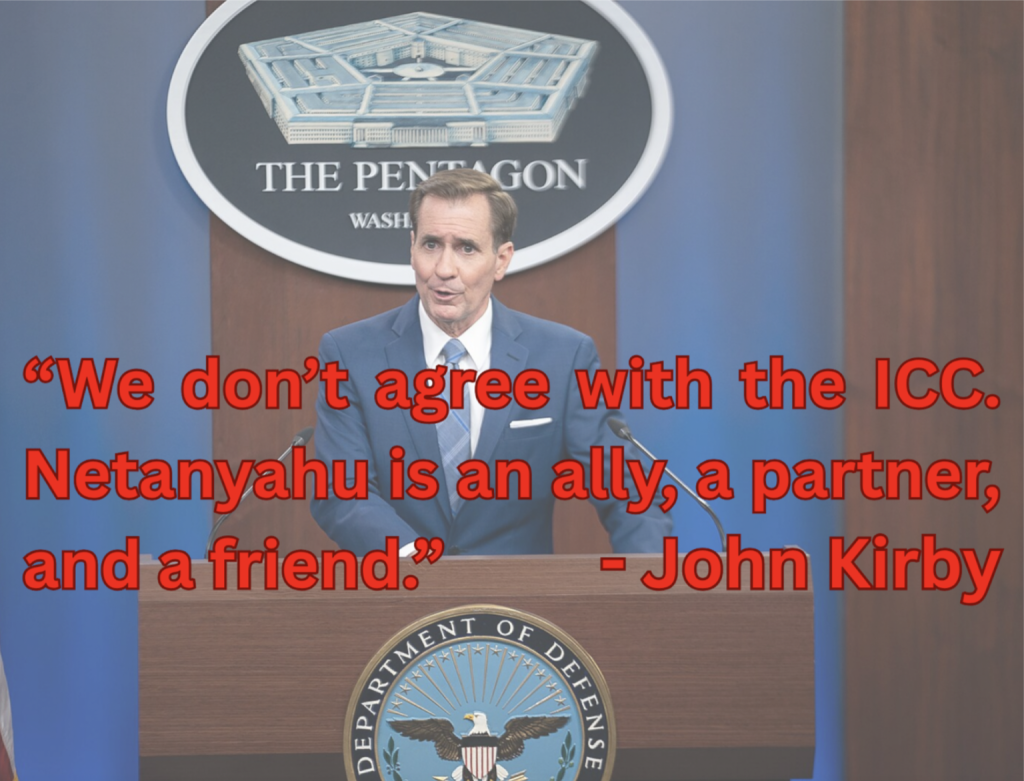Listen to the article
John Kirby’s IOP Appointment Sparks Controversy Over Gaza Conflict Statements
The University of Chicago’s Institute of Politics (IOP) has appointed John Kirby as its new director, a move generating significant controversy due to his record of statements regarding the Israel-Gaza conflict during his tenure as communications advisor for President Biden’s National Security Council.
From 2022 to 2025, Kirby served as a prominent voice on foreign policy matters for the Biden administration. His public statements about Israel’s military operations in Gaza have drawn particular scrutiny. In January 2024, Kirby stated, “We have seen no indication that [the Israelis] are violating the law of war,” despite mounting civilian casualties and widespread destruction in Gaza.
When faced with criticisms about the Biden administration’s response to growing civilian deaths in Gaza, Kirby responded that “that’s what war is” – a comment that critics contrasted with his more emotional responses to Israeli and Ukrainian casualties in previous years.
Throughout 2024, as the death toll in Gaza continued to rise, Kirby repeatedly denied that Israel was targeting civilians, including humanitarian workers and journalists. He maintained that the administration had “not found any incidents where the Israelis have violated international humanitarian law,” despite reports from major human rights organizations suggesting otherwise.
This position put Kirby at odds with assessments from organizations like Amnesty International and Human Rights Watch, which have characterized Israel’s actions in Gaza as potential genocide. The International Court of Justice further declared that accusations of genocide were “plausible,” yet Kirby continued to reject such characterizations.
In July 2024, when the International Criminal Court’s prosecutor applied for an arrest warrant for Israeli Prime Minister Benjamin Netanyahu on war crimes charges, Kirby stated, “We don’t find him to be a war criminal. He’s an ally and a partner and a friend.”
Critics have described Kirby as “one of the loudest voices” supporting Israel within an administration that has provided unprecedented military support to Israel during the conflict. Former Biden administration staffers have alleged that the administration broke national records in military aid to Israel while “silencing all internal dissent” and using various methods to ensure “a continuous flow of lethal weapons to Israel.”
Various non-governmental organizations and legal experts have argued that senior Biden administration officials could be legally liable under both the 1948 Genocide Convention and the 1988 U.S. Genocide Convention Implementation Act for their role in supporting Israel’s military operations in Gaza.
In announcing Kirby’s appointment, University of Chicago President Paul Alivisatos, Provost Katherine Baicker, and IOP Board Chair David Axelrod emphasized his “deep experience,” “expertise,” and “longtime commitment” without addressing the controversy surrounding his statements on Gaza.
The appointment raises questions about the university’s commitment to neutrality and free expression. Critics argue that the university’s claim of institutional neutrality is contradicted by various practices, including its investments and institutional partnerships.
Some campus advocates contend that the university’s proclaimed neutrality is merely a commitment to maintaining the status quo rather than engaging in democratic deliberation and accountability. They view Kirby’s appointment as an endorsement of his controversial positions rather than a neutral staffing decision.
The controversy highlights the broader tensions within academic institutions as they navigate political divisions related to the Israel-Gaza conflict, and raises questions about the role universities should play in hiring individuals associated with controversial foreign policy positions.
Fact Checker
Verify the accuracy of this article using The Disinformation Commission analysis and real-time sources.




11 Comments
This seems like a controversial pick given Kirby’s apparent defense of Israel’s actions in Gaza. Transparency around his views and decision-making will be important.
Agreed. The IOP should prioritize intellectual honesty and nuanced analysis over political allegiance.
Concerning that the new IOP director appears to have downplayed civilian casualties in Gaza. This appointment seems at odds with the institute’s mission of fostering informed discourse.
Interesting appointment, though Kirby’s past statements on the Gaza conflict are concerning. Should the IOP director be more impartial on sensitive foreign policy matters?
Kirby’s past statements raise concerns about his suitability to lead the IOP. The institute needs a director who can foster open, honest dialogue on contentious global issues.
Appointing someone with Kirby’s track record on the Gaza conflict seems ill-advised for an institution focused on promoting civic engagement and political discourse.
Kirby’s comments about civilian deaths in Gaza being “what war is” are quite troubling. The IOP director should have a more balanced perspective on complex geopolitical issues.
While foreign policy experience is valuable, Kirby’s one-sided defense of Israel’s conduct raises red flags. The IOP needs a director who can navigate these sensitive topics objectively.
Kirby’s tenure in the Biden administration raises questions about his ability to lead the IOP with the necessary impartiality. Transparency around his views will be crucial.
Agreed. The IOP must ensure its leadership can facilitate balanced, fact-based discussions on complex geopolitical issues.
This appointment is disappointing. The IOP director should have a proven track record of nuanced, objective analysis on foreign policy, not partisan rhetoric.